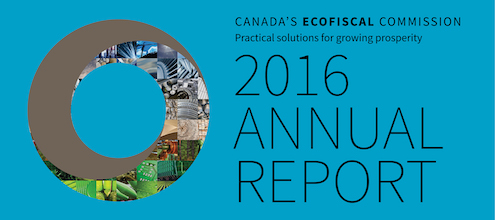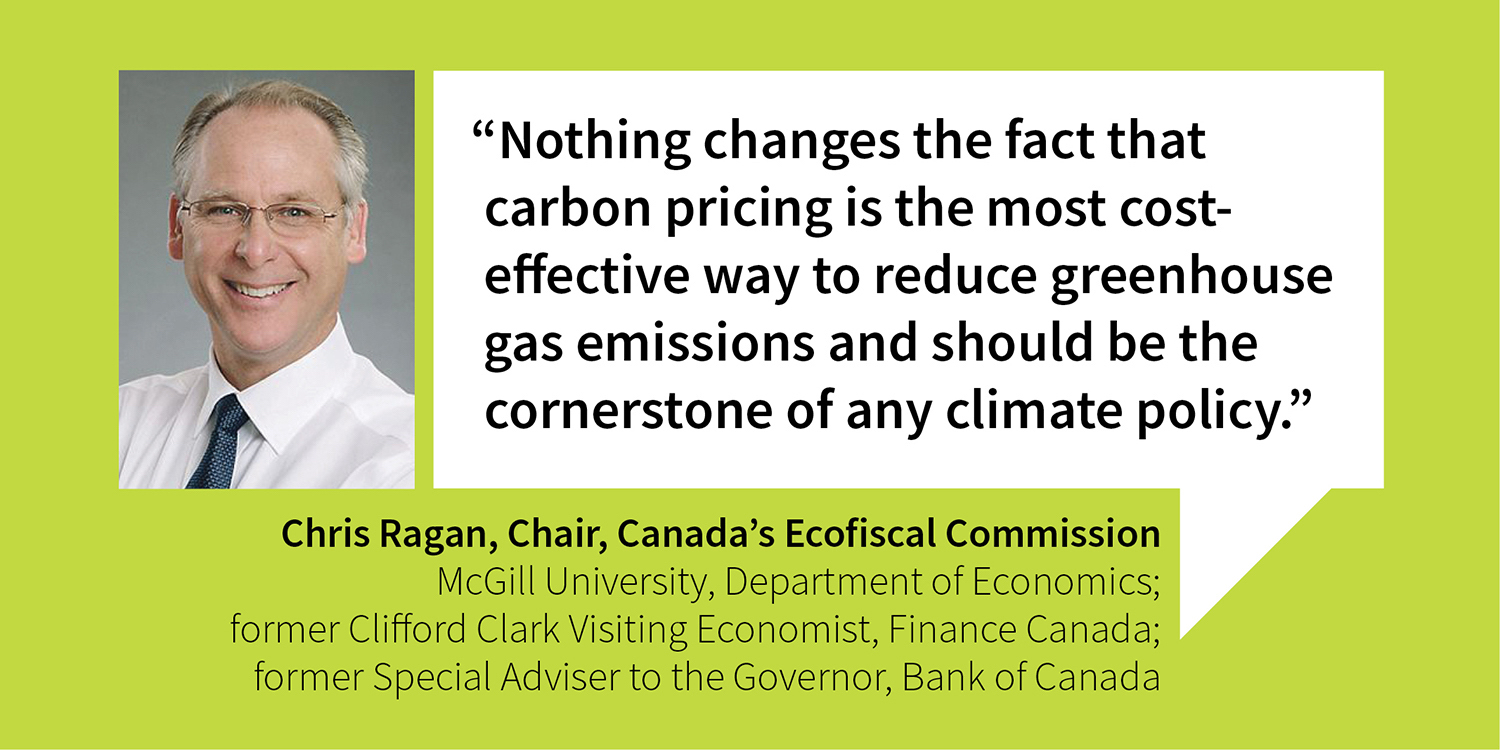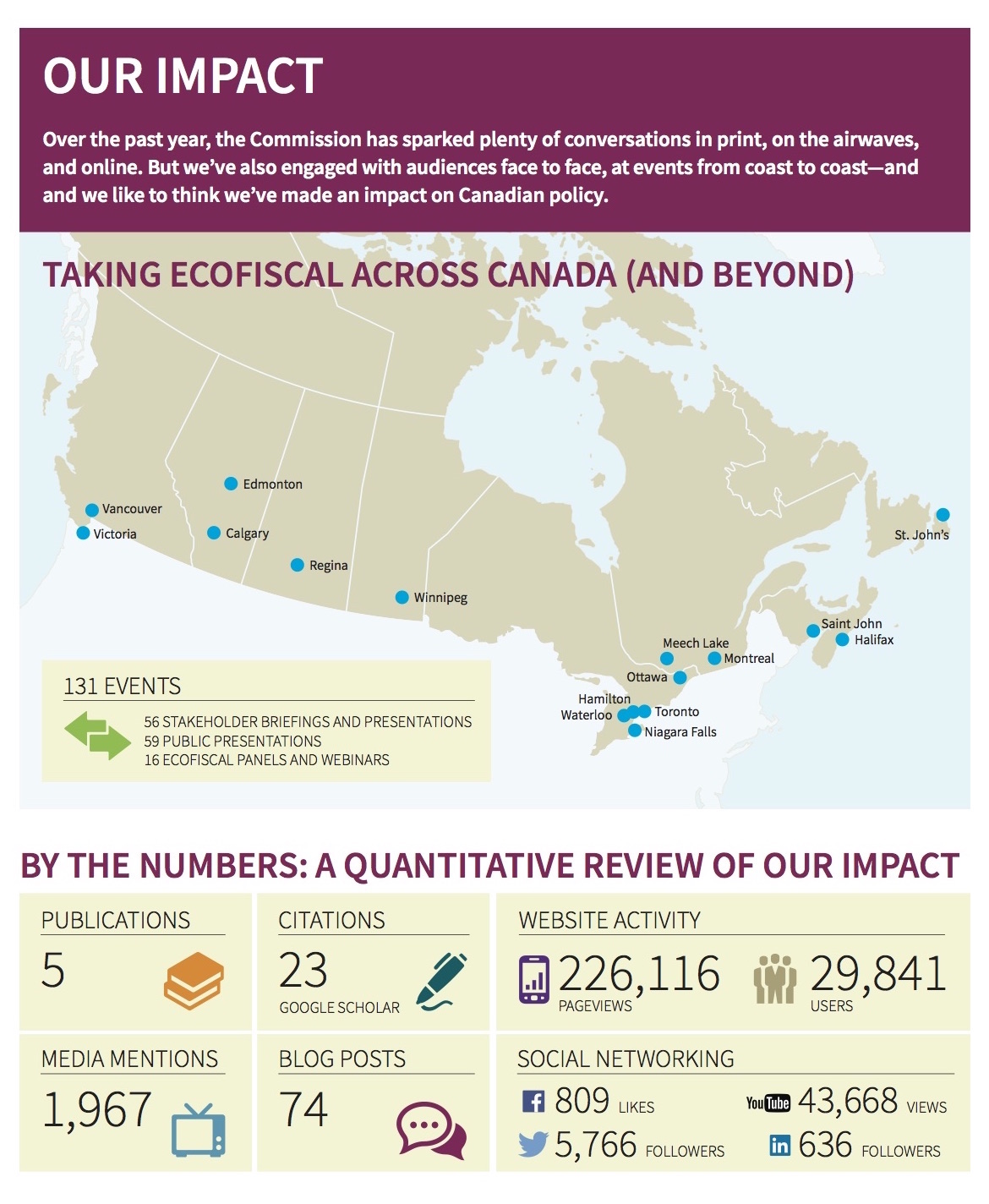
Annual Report 2016: Letter from the Chair
In the busyness of my day-to-day work, I too rarely take the time to reflect on our progress at the Ecofiscal Commission. But reports like this one provide the opportunity to stop and take stock of just how dramatically the Canadian policy landscape has changed.
Over the past two years, we’ve seen Ontario’s Liberal government announce its cap-and-trade system, Alberta’s NDP government introduce its carbon levy and carbon competitiveness legislation, and Manitoba’s PC government commit to developing a carbon pricing system. That’s three different parties enacting a form of carbon pricing! Moreover, the federal government has committed to filling in the remaining policy gaps by 2018.
As the national conversation has changed, so has our emphasis. We’ve moved from making the broad case for carbon pricing to discussing the many complex details of what well-designed systems look like. And more and more, policymakers are reaching out to us of their own accord—a telling indicator of our success. I’m very proud of the role the Ecofiscal Commission has played in this overall policy picture.
Of course, there’s a lot more work to be done. Some provinces have yet to embrace carbon pricing. And in those that have already adopted it, getting the mechanics right will take considerable attention and effort.
The United States remains the country’s largest trading partner, and Canadian businesses need to remain competitive with their rivals south of the border. This is nothing new. And whatever political message comes from the new U.S. administration, nothing changes the fact that carbon pricing is the most cost-effective way to reduce greenhouse gas emissions and should be the cornerstone of any climate policy. The politics may have changed, but the need for well-designed pricing policies hasn’t.
Meanwhile, the Commission is the first to acknowledge that carbon pricing can’t do everything. That’s why we’ll be exploring complementary policies that work alongside the carbon price to drive further reductions.
And while climate change is arguably the most crucial environmental issue facing Canada today, it’s far from the only one. In 2017, we’ll look at applying basic ecofiscal principles to other areas, including water pollution.

In tackling these complex topics, we’re fortunate to be working with many of Canada’s best economists and savvy policymakers. As Adviser Bob Rae and Commissioner Paul Lanoie wrap up their time with us, I want to thank them both for their service and to wish Paul all the best in his new role as Quebec’s Sustainable Development Commissioner.
At the same time, I’m delighted to welcome Gordon Campbell to our Advisory Board. As the first politician to introduce a broad-based carbon tax in Canada, the former B.C. premier brings significant experience and enthusiasm to the Commission.
Finally, I’d like to thank our funders, whose generosity allows us to do this important work. As we look forward to our final three years, we deeply appreciate your continued support and confidence.
Read our 2016 Annual ReportSummary of Our Impact





Comments are closed.